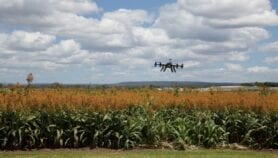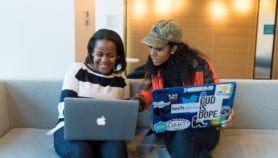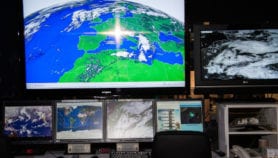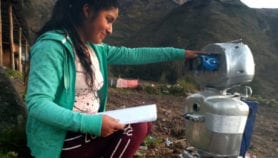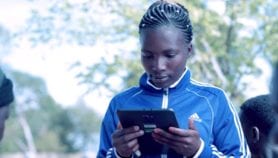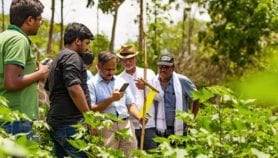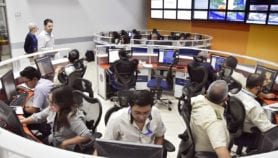Send to a friend
The details you provide on this page will not be used to send unsolicited email, and will not be sold to a 3rd party. See privacy policy.
When plans were first agreed in 2001 to hold a ‘world summit’ on ICTs, hopes were high that the event would trigger a new international consensus on how to apply these technologies to the needs of the world’s poor.
In particular, proponents of the meeting wanted to avoid ideological conflict, and focus on the practical issues needed to bridge what is widely described as the ‘digital divide’.
For largely political reasons, the World Summit on the Information Society (WSIS) was divided into two components. The first part, which took place in Geneva, Switzerland two years ago, ended in stalemate.
Although the meeting endorsed two high-minded documents — a ‘Declaration of Principles’ and an outline ‘Plan of Action’ — attempts to put flesh on their bones were undermined by disagreement on a single issue, namely who should run the Internet (see The challenges of ‘e-science’).
Sadly, it seems increasingly likely that the same fate awaits the second phase of WSIS, which opens in Tunis, Tunisia, later this week. Once again, Internet governance is expected to block significant achievements on other fronts.
There is growing international agreement that because of the Internet’s power, the basic rules governing it should be similar to those applied to other international communications systems (such as the allocation of radio wavebands).
This means creating new global mechanisms to make the rules both more transparent and more accountable.
But some are resisting this pressure for change. The opponents are led by the US government, which is seeking to maintain the current system. Under this, the Internet’s operation is controlled by a US organisation, the Internet Corporation for Assigned Names and Numbers. The only body to which this is responsible is the US Department of Commerce, and through this, the US Congress.
Unless some miracle occurs over the next few days, the second part of WSIS will end in the same political deadlock as its predecessor. And if this happens, the attention generated by the dispute will overshadow the more pressing issue at stake in the WSIS discussions: how to find practical ways of achieving greater digital equity when gap between the promise of ICTs and what they are actually delivering is far wider than it should be.
Legitimate disagreement
Internet governance is clearly important. The United States is correct to identify Internet openness as a major asset. Openness lies at the root of the Internet’s power to provide knowledge and information that can meet the needs of individuals in developed and developing countries alike.
There is also good reason for concern about heavy-handed control of the Internet by international bureaucracy. SciDev.Net itself has direct experience of the impact this can have. Despite being a professional media organisation, we were denied press credentials for this week’s WSIS meeting on the grounds that as an educational charity, we are a non-government organisation, and thus apparently ineligible to attend press conferences or use media facilities.
More seriously, governments that perceive the Internet as a threat could attempt to limit its use for democratic debate. Any efforts to exert political control on content must be resisted. As Kofi Annan, the secretary general of the United Nations wrote in a recent article in the Washington Post, “To defend the Internet is to defend freedom itself”.
But it does not follow that the US understanding of what such freedom means, or of how it should be interpreted and imposed is the correct interpretation. Nor, as the International Telecommunications Union (the main sponsors of WSIS) has demonstrated — does it require heavy-handed international bureaucracy.
Various proposals have been put forward in recent months, most recently by the European Union. Many suggest setting up a relatively ‘hands-off’ international organisation that could provide a forum for discussing and resolving contentious issues about Internet governance, without interfering in its technical aspects.
To reject these proposals in their totality for essentially ideological reasons — which seems to be the current stance of the United States — risks undermining international efforts to reach a reasonable agreement. Similarly, US opposition to the Kyoto protocol undermines the international fight against global warming. Hopefully the Tunis meeting will find a way out of this impasse.
Bridging the equity divide
But even if leaders reach an agreement on the governance issue this week, an important step towards creating greater global ‘digital equity’, it would not be enough to achieve this goal. An equally, if not more important need, is for practical efforts to put the promises of ICTs into effect.
These promises are being increasingly recognised. In the scientific domain alone, they range from delivering the most recent research findings on obscure tropical diseases to isolated clinics, to the possibilities offered by ‘open archiving’ for making the world’s scientific literature available to all at no charge (see our special feature Open Access Archiving: the fast track to building research capacity in developing countries).
The need remains substantial. According to background documents being circulated by the WSIS organisers, less than three per cent of people in Africa used the Internet last year, compared to more than half of people in industrialised nations. And one relatively small European country, Denmark, had more than twice the international Internet bandwidth used by the whole of Latin America and the Caribbean combined.
Speaking in London last week, the economist Jeffrey Sachs said the need to increase bandwidth was among the most urgent — and potentially effective — ways that the developed world could help developing nations dig their own way out of poverty. He described how a recent study by Carnegie Mellon University in the United States estimated that almost all the major cities in Africa could become fully ‘wired’ for a relatively modest investment, in terms of international budgets, of about US$1 billion.
Sachs also announced a project of his own that plans to give 100 villages across Africa access to the Internet. Given that more than 400,000 African villages lack such access, this could be seen as little more than a drop in the ocean.
But if it can demonstrate both the feasibility and value of such efforts — as has been shown in India — then hopefully it will inspire others to make the necessary investment.
The main message of Sachs’s talk was that ideologies should not prevent practical solutions being implemented. Nor should they stop funds being invested in solutions on a broad enough scale to make a significant impact on poverty throughout the developing world.
This conclusion should not be lost on delegates at the WSIS meeting in Tunis. If there has been substantial progress during the two years since the first part of the meeting in Geneva, it has been primarily on the practical side.
It would be a shame if progress towards narrowing the digital divide were to be frustrated by a lack of comparable progress on the political front.




